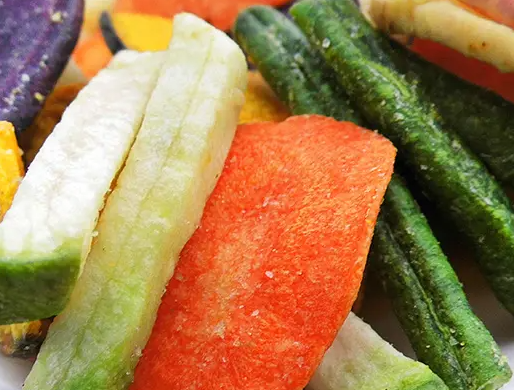Nutritional comparison of frozen vegetables and fruits and fresh vegetables and fruits
Most of us may think that there is basically no major difference in nutrition between fresh and frozen fruits or vegetables, except that frozen food lasts longer.
British researchers found that frozen fruit and fresh vegetables were higher in nutrients and had higher levels of antioxidants. Two-thirds of the food vitamin C, polyphenols, anthocyanins, lutein, and beta carotene were generally elevated in the frozen food, especially on the third day. These are nutrients that are transformed by the food's own antioxidants during the freezing process.

A research team at the University of California tested and compared eight fruits and fresh vegetables, first frozen including cabbage, broccoli, spinach, carrots, peas, strawberries, and blueberries. The results showed that frozen peas, blueberries, and bean sprouts had higher levels of vitamin C than fresh ones, and frozen broccoli had more vitamin B than fresh broccoli. That's because water-soluble vitamins disappear during transportation. The nutritional value of frozen fruits and vegetables has not changed much. When the temperature is minus 18 degrees Celsius, the vitamins and nutrients in the food are immediately frozen in the food.
Frozen products were not associated with a reduction in dietary fiber. But whether it's frozen or fresh vegetables, it's also difficult to maintain complete vitamins. Therefore, it is necessary to process the food as soon as possible to avoid the loss of nutrients.
- We have practically run out of broadleaf herbicides for garlic cultivation
- Egypt: Record onion exports in the last six months
- Our fruit drying concept offers added value to growers and traders
- Larger US lemon crop this season
- Peruvian pineapple still has great potential to increase its exports
- Pagoda held a Newton apple tasting in Guangzhou
 Telephone :+86-15562397099
Telephone :+86-15562397099










